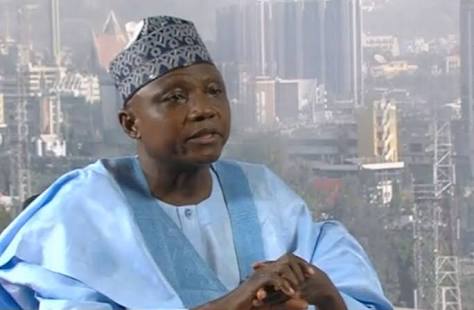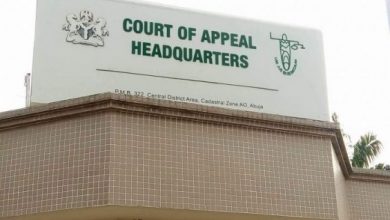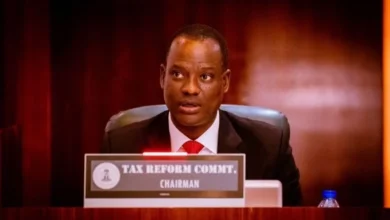NewsPoliticsPress release
PDP should not Drag the Presidency into their Smear Campaign against the Judiciary

The Presidency has admonished the Peoples Democratic Party, PDP to stop dragging the presidency into their current sponsored media smear campaign against the President of the Court of Appeal, Justice Zainab Bulkachuwa.
Reports claiming that an agency of the government, the Department of State Services, DSS has indicted Bulkachuwa of corruption are the latest of this sponsored campaign aimed at causing disaffection between the Executive and the Judiciary, the two arms of government that had operated smoothly under the present dispensation.
While the PDP and its candidates are free to exercise their right to challenge the results of the 2019 presidential election, it is unacceptable to drag the name of the President or other organs of the executive branch into the campaign of character assassination against the President of the Court of Appeal.
The DSS doesn’t conduct its duties in the manner so described and you can’t use a fake security report to drag the presidency into a smear campaign against the President of the Court of Appeal.
Attacking judges because the outcomes of cases don’t favour you and keeping quiet when the verdict is in your favour smacks of insincerity, double standard and mischief.
Intimidating and impugning the character of judges in order to force them to bow to blackmail is against the spirit of an independent judiciary.
The PDP praised the verdict of the Osun gubernatorial election tribunal because it favoured them, but they are now singing a different tune because they lost their appeal.
We cannot keep changing the definition of an independent judiciary to suit our political convenience and bias without ultimately creating chaos in the system.
If the PDP continues to blackmail and smear judges with fake news stories, we will ultimately find ourselves dealing with a situation where judges may be afraid to handle cases, thereby creating delays in the dispensation of justice.
If the presidency had any influence on election petition tribunals, APC candidates wouldn’t have lost a single case before the courts.





